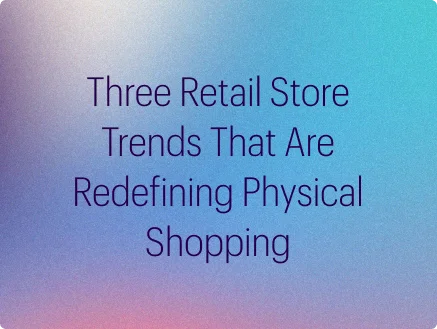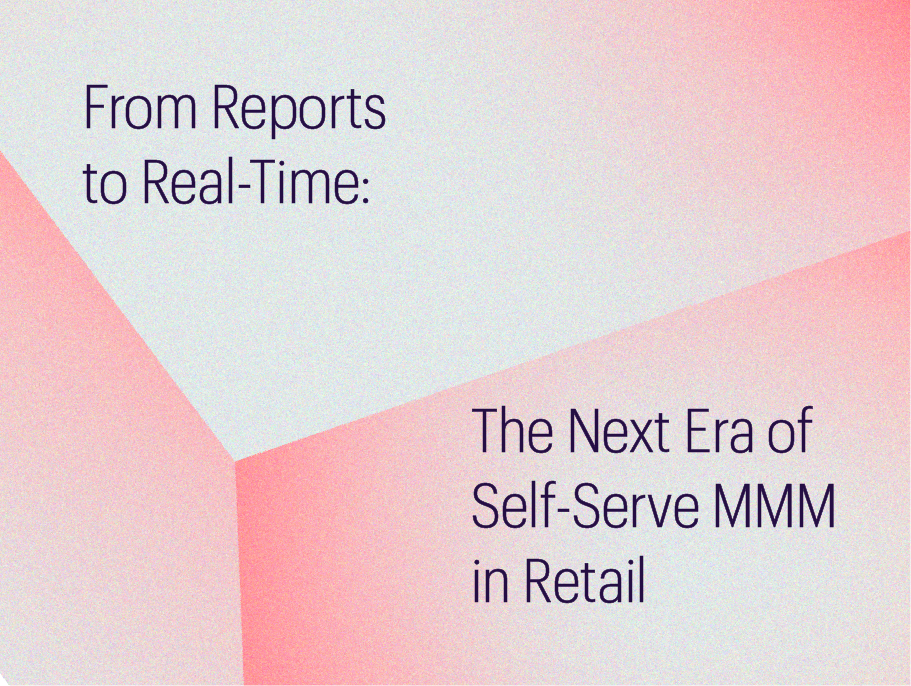The global retail industry is in the midst of one of its most turbulent eras. With economic uncertainty, inflationary pressures, and shifting consumer behaviors reshaping how and where people shop, retailers are under immense pressure to adapt or risk being left behind. In 2024 alone, over 25 major retail chains filed for bankruptcy, while global retail sales growth slowed to its weakest pace since the pandemic. From price wars and supply chain disruptions to digital transformation challenges and declining brand loyalty, the modern retailer must now operate in an environment defined by volatility and razor-thin margins.
Traditional Market Share Analytics (MSA) was designed for a simpler retail environment, one defined by stable competition, predictable consumer behavior, and quarterly reporting cycles. In that world, syndicated data and historical trend analysis were enough to guide strategic decisions. Today, however, retail has become an ecosystem of constant motion.
In this landscape, data has become the ultimate competitive currency. Retailers that can accurately understand their market position, anticipate trends, and respond to shifting consumer preferences gain a decisive edge. This is where Market Share Analytics becomes indispensable. Far more than a backward-looking performance measure, Market Share Analytics today enables businesses to:
- Benchmark competitive positioning in real time
- Identify emerging threats and opportunities
- Align strategies across channels and regions
- Optimize decision-making with precision and speed
For retailers navigating the chaos of modern commerce, Market Share Analytics isn’t just a strategic advantage; it’s a survival necessity.
Challenges In Market Share Analysis
Despite its strategic importance, Market Share Analytics often struggles to deliver timely and actionable insights. One major barrier lies in data fragmentation. With information scattered across retail channels, syndicated sources, and internal systems, teams spend more time reconciling numbers than interpreting trends. This disconnect between sources leads to reporting delays, inconsistencies, and missed opportunities for real-time course correction.
Technology is another limiting factor. Many enterprises still rely on static dashboards and rigid BI tools that cannot adapt to the dynamic retail environment. These legacy systems often fail to integrate external data streams or simulate alternate business scenarios, leaving strategy teams with only a backward-looking view of performance. As a result, decision-making becomes reactive rather than predictive. One such major retailer was a company that failed to invest in modern analytics, digital transformation, and effectively define its market position, causing its income to plunge 84% from 2005 to 2011 and eventually leading to bankruptcy.
People and processes also play a critical role in this challenge. Insights are frequently trapped within functional silos, as marketing, pricing, and merchandising teams operate in parallel instead of in sync. At the same time, evolving privacy regulations such as GDPR and CCPA constrain data collection and use, while an over-reliance on historical data prevents retailers from capturing fast-emerging market trends. Without a unified analytical foundation, collaboration suffers, and the organization loses its ability to translate market signals into cohesive, cross-functional actions.
MathCo’s Solution: Turning Insight into Impact
Despite these challenges, MathCo has emerged as a trusted partner helping retailers transform market share analysis from a reactive reporting exercise into a forward-looking, strategic capability.
By leveraging AI-driven analytics, real-time data integration, and intelligent automation, MathCo empowers businesses to unify fragmented data sources and generate actionable insights that drive measurable outcomes. Its solutions are designed to:
- Integrate and harmonize multichannel data across internal and external systems
- Enable predictive analytics that anticipate competitive shifts
- Deliver intuitive dashboards that democratize insights across teams and leadership levels
MathCo recently partnered with merchandising leaders at a major retail enterprise to revamp their Market Share Analytics ecosystem. The team implemented an end-to-end solution that:
- Integrated 18+ internal and external data streams, including pickup, delivery, and private-label performance data
- Boosted reporting accuracy from 65% to over 80%
- Generated 10,000+ monthly dashboard views across business units
- Enabled proactive detection of competitive threats, pricing pressures, and category shifts
By automating data workflows and enhancing visibility across regions and product lines, MathCo helped reduce manual reporting effort and drive smarter, faster decision-making, resulting in an estimated $2.7B revenue impact in Q4 2025 alone.
The MathCo Way: Where Strategy Meets Engineering
What differentiated MathCo’s solution was the way it combined deep technical rigor with contextual understanding. The team designed a reasoning-based Agentic AI framework specifically for the client’s environment; not a prepackaged system, but one calibrated to their data, processes, and goals. This purpose-built architecture enabled seamless integration and scalability across existing platforms. Through an iterative, hands-on engagement approach, MathCo ensured the solution remained both technologically sound and strategically relevant throughout implementation; strengthening the client’s ability to monitor and enhance their market position in real time.
To learn more about this engagement, read our in-depth case study here.
Redefining the Future of Market Share Intelligence
As retail competition intensifies, Market Share Analytics is no longer about knowing who’s leading; it’s about understanding why and what’s next. MathCo’s vision is to help retail leaders move from lagging indicators to leading actions, where every decision is informed by data, shaped by reasoning, and refined by outcomes.
For retail strategy teams navigating dynamic markets and fragmented insights, this shift marks a turning point. With an Agentic AI powered framework, MathCo connects siloed data, simulates real-time scenarios, and drives proactive decisions across merchandising, pricing, and assortment strategies; transforming Market Share Analytics from a static reporting process into an adaptive, decision-intelligent capability.
This is where the future of Market Share Analytics is headed, not reactive or report-led, but adaptive, interactive, and agent-driven. Interested in learning how MathCo can make your retail analytics ecosystem future-ready with Agentic AI? Write to us at [email protected] for a free demo.
Learn more about our offerings, the challenges we solve, and how we empower the retail industry here.


